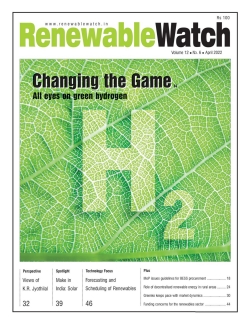Research Papers/Articles
Zero-emission vehicle deployment: Latin America
2022
Author(s): Kohli S, Khan T, Yang Z, Miller J
This briefing gives an overview of the status of ZEV development in Latin American economies.
Life Cycle Assessment of Lithium Sulfur Battery for Electric Vehicles
2017
Author(s): Deng Y, Li J, Li T, Gao X, Yuan C
Lithium-sulfur (Li-S) battery is widely recognized as the most promising battery technology for future electric vehicles (EV). To understand the environmental sustainability performance of Li-S battery on future EVs, here a novel life cycle assessment (LCA) model is developed for a comprehensive environmental impact assessment of a Li-S battery pack using a graphene sulfur composite cathode and a lithium metal anode protected by a lithium-ion conductive layer, for actual EV applications.

Connecting Battery Technologies for Electric Vehicles from Battery Materials to Management
2022
Author(s): Zhao G, Wang X, Negnevitsky M
This paper presented comprehensive discussions and insightful evaluations of conventional electric vehicle (EV) batteries (such as lead-acid, nickel-based, lithium-ion batteries, etc.) and the state-of-the-art battery technologies (such as all-solid-state, silicon-based, lithium-sulphur, metal-air batteries, etc.).
A Review of Lithium-Ion Battery for Electric Vehicle Applications and Beyond
2019
Author(s): Chen W, Liang J, Yang Z, Li G
This paper reviews recent research and developments of lithium-ion battery used in EVs. Widely used methods of battery sorting are presented.
Comparison of Different Battery Types for Electric Vehicles
2017
Author(s): Iclodean C, Varga B, Burnete N, Cimerdean D, Jurchiș B
This study presents the autonomy of an Electric Vehicle that utilizes four different types of batteries: Lithium Ion (Li-Ion), Molten Salt (Na-NiCl2), Nickel Metal Hydride (Ni-MH) and Lithium Sulphur (Li-S), all of them having the same electric energy storage capacity.

Powering Up: Understanding Traction Batteries: Technology and Standards
2022
Author(s): Bej S, Bhagyasree
Rapid improvements in battery technologies are crucial in achieving the required pace of transition to cleaner mobility. The high energy density, specific energy, and cycle life of the LiBs make these batteries outperform other available battery chemistries.
Benefits of the 2020 Multi-State Medium- and Heavy-Duty Zero-Emission Vehicle Memorandum of Understanding
2022
Author(s): Sen A, Minjares R, Miller J, Braun C
This paper estimates the multiple benefits of achieving the zero-emission medium- and heavy-duty sales targets of the Multi-state Memorandum of Understanding in select states. Without new policies, this study finds that the baseline reduction in well-to-wheel CO2 emissions of the medium- and heavy-duty fleet in these states are on a path to decline 8% below 2020 levels by 2030 and 23% below 2020 levels by 2050. NOx emissions are projected to decline through the late 2030s as the oldest generation of ICE vehicles are replaced with newer vehicles manufactured to comply with U.S. 2010 and Tier 3 emission standards.
Advancements in Battery Technologies of Electric Vehicle
2021
Author(s): Bupesh Raja VK, Raja I, Kavvampally R
This paper reviews the current major challenges faced by the Electric Vehicle Industry along with possible solutions to overcome them.
Update on the global transition to electric vehicles through 2020
2022
Author(s): Cui H, Hall D, Li J, Lutsey N
This briefing provides an update on electric vehicle market and policy developments globally through 2020, with a focus on changes since our previous update in 2019. It includes information on how several governments in major markets have revised their vehicle electrification targets and developed related policies, as well as summarizes global electric vehicle market growth in 2020. This briefing considers battery electric vehicle (BEV), plug-in hybrid electric vehicle (PHEV), and fuel cell electric vehicle (FCEV) technologies but does not examine non-plug-in hybrid electric vehicles.
An Assessment of Electric Vehicles and Vehicle to Grid Operations for Residential Microgrids
2022
Author(s): O'Neill D, Yildiz B, Bilbao JI
This paper evaluates the annual operation and benefits of EVs and V2G in a microgrid environment and demonstrates different modes of operation. Guided by the gaps identified in the literature, one of the main contributions of this research is to uncover the impact of EV charging scenarios on the V2G operations.



